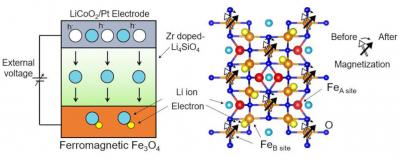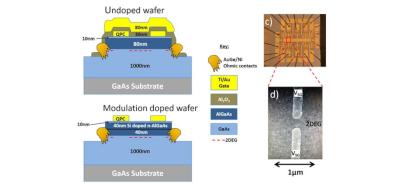Researchers develop a simple method to manipulate the magnetization angle of magnetite
Researchers from the Tokyo University of Science have developed an all-solid redox device composed of magnetite (Fe3O4) thin film and a solid electrolyte containing lithium ions that successfully manipulated the magnetization angle at room temperature.

The researchers say they have developed a surprisingly simple yet efficient strategy to manipulate the magnetization angle in magnetite, a typical ferromagnetic material. This magnetization rotation is caused by the change of spin-orbit coupling due to electron injection into a ferromagnet. The new approach leverages a reversible electrochemical reaction.
